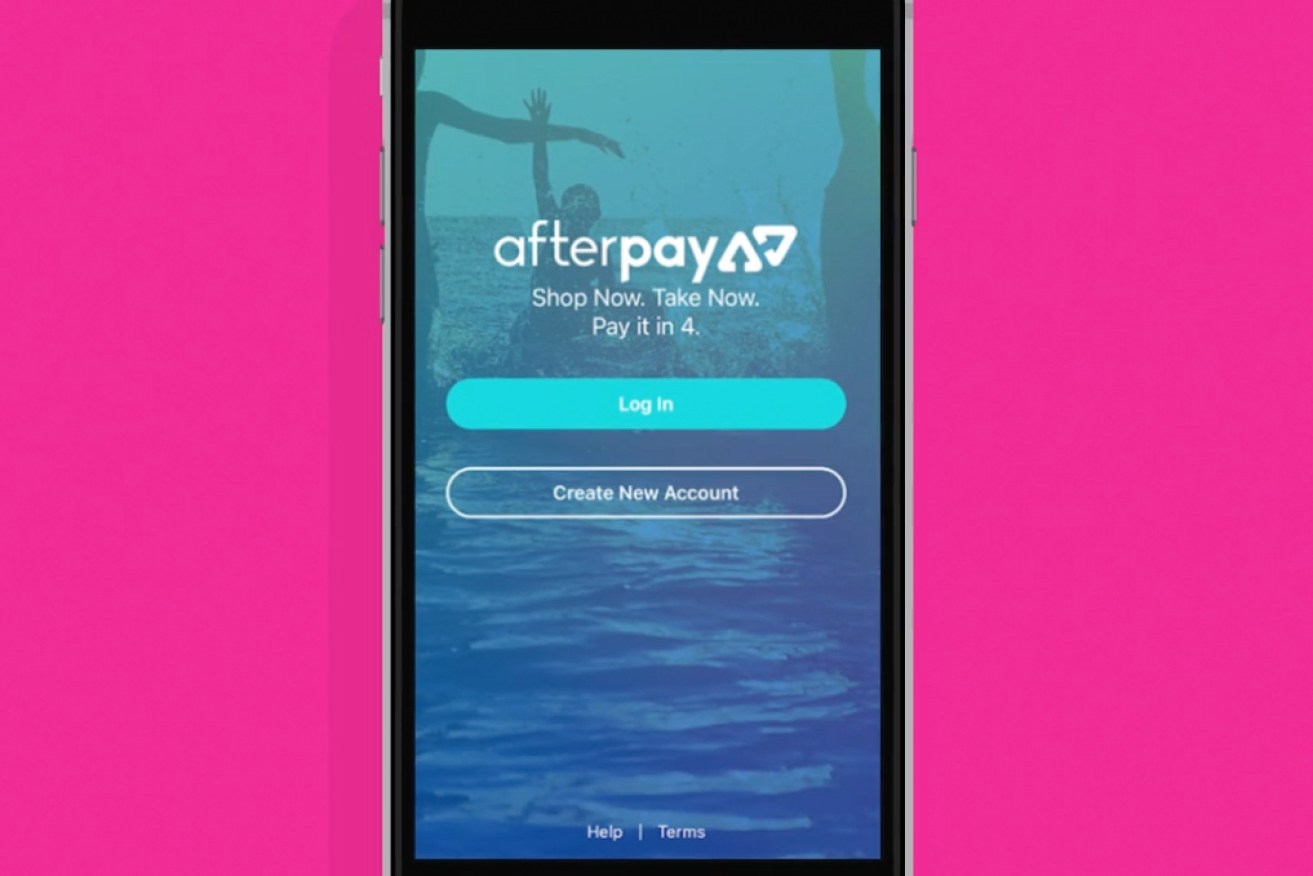Afterpay is raking in millions at the expense of debt-ridden and vulnerable Australians


Afterpay is leaving vulnerable Australians in debt. Photo: Afterpay
Popular homegrown ‘buy now, pay later’ app Afterpay has posted huge growth and is now expanding internationally – but its success has been tainted by a rise in debt problems reported by users.
As many as one-quarter of Afterpay users are suffering financial stress, with one in three admitting to missing at least one payment, according to research by comparison site Mozo.
This comes afer the National Debt Helpline told The New Daily it is receiving an increase in reports from vulnerable consumers using the app.
Afterpay’s annual report revealed that the company’s late-fee earnings rose by a massive 365 per cent, to $28.4 million, in one year alone.
About one-quarter of its income now comes directly from late fees, with the remainder from retail sales commissions.
What is Afterpay?
The app is a ‘buy now, pay later’ service like rivals Zip Pay and Openpay.

Afterpay is becoming an increasingly popular payment method. Photo: Afterpay
It allows consumers to make a purchase and pay the money owed in four equal instalments, due every two weeks.
While the service is interest-free, it does charge fees for late payments.
The website only outlines the details of these late fees at the base of a lengthy list of terms and conditions.
A $10 late fee is incurred if a payment is missed, with an additional $7 charged seven days later if the payment remains unpaid.
A consumer can be charged up to $68 in late fees per item purchased.
New users require proof of identity to join and a debit card with enough money on it to make the first payment, but do not need to show proof of income.
The homegrown startup has grown rapidly since launching in 2015, attracting more than one million users. It is particularly popular among millennials which make up 75 per cent of its user base.
More than 7200 retailers, including large corporations such as Jetstar, The Iconic and Optus, now accept Afterpay as a payment method.
The company’s share price surged an impressive 17.5 per cent on Friday following the release of its annual report.
Its late fee earnings climbed from $6 million in the 2016-17 financial year to $28.4 million.
The service operates in Australia, New Zealand and the United States, and plans to expand into the United Kingdom.
Increase in debt reports
Almost two-thirds of users said the “small digestible payments” influence them to make purchases they would not normally make upfront, according to Mozo research.
About 45 per cent admit they spend more on Afterpay than if they were to use a credit or debit card, while 30 per cent are paying off three to five purchases every month.
Katherine Temple, senior policy officer at Consumer Action Law Centre, said the National Debt Helpline has received an increased number of calls about debt relating to Afterpay and other ‘buy now, pay later’ services.
“Most people calling us for help … are struggling financially, and have numerous other debts like credit cards and payday loans,” she told The New Daily.
“They might also be dealing with other issues such as health problems, a relationship breakdown or unemployment. These people can be in serious financial trouble.”
Call for ‘buy now, pay later’ reform
Afterpay is not regulated under national credit laws due to its unique business model in not charging interest.
Ms Temple said this means that, unlike other credit providers, it is not required to undertake income checks before providing credit.
“This is how some people are getting caught out with more debt than they can afford. Small payments can quickly snowball and become a problem,” she said.
“ASIC is due to release a report into the ‘buy now, pay later’ sector later this year.”
In a submission by the corporate watchdog ASIC earlier this month, it supported extending the scope of its product intervention power regime, including ‘buy now, pay later’ services.
ASIC did not respond to The New Daily‘s request for comment by deadline.
An Afterpay spokeswoman said the company has a policy in place to prevent financial hardship but would not elaborate.
“Afterpay promotes responsible spending and seeks to offer a credible alternative to credit products,” she said.
“If payments are not made on time the customer account is immediately suspended and they cannot continue to purchase.”








